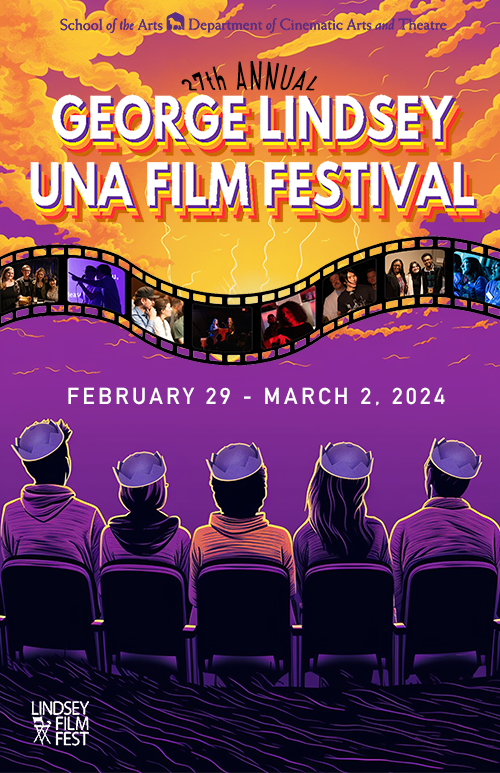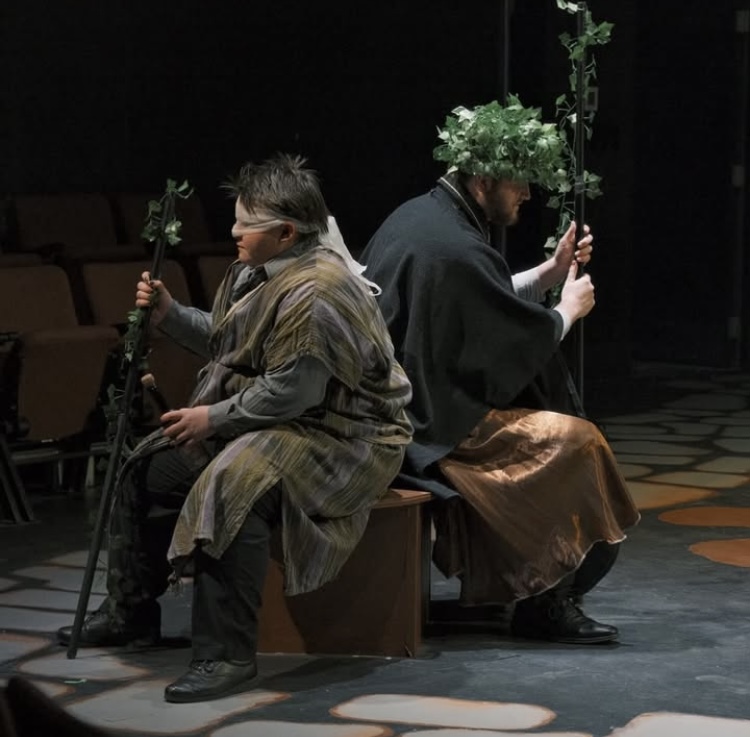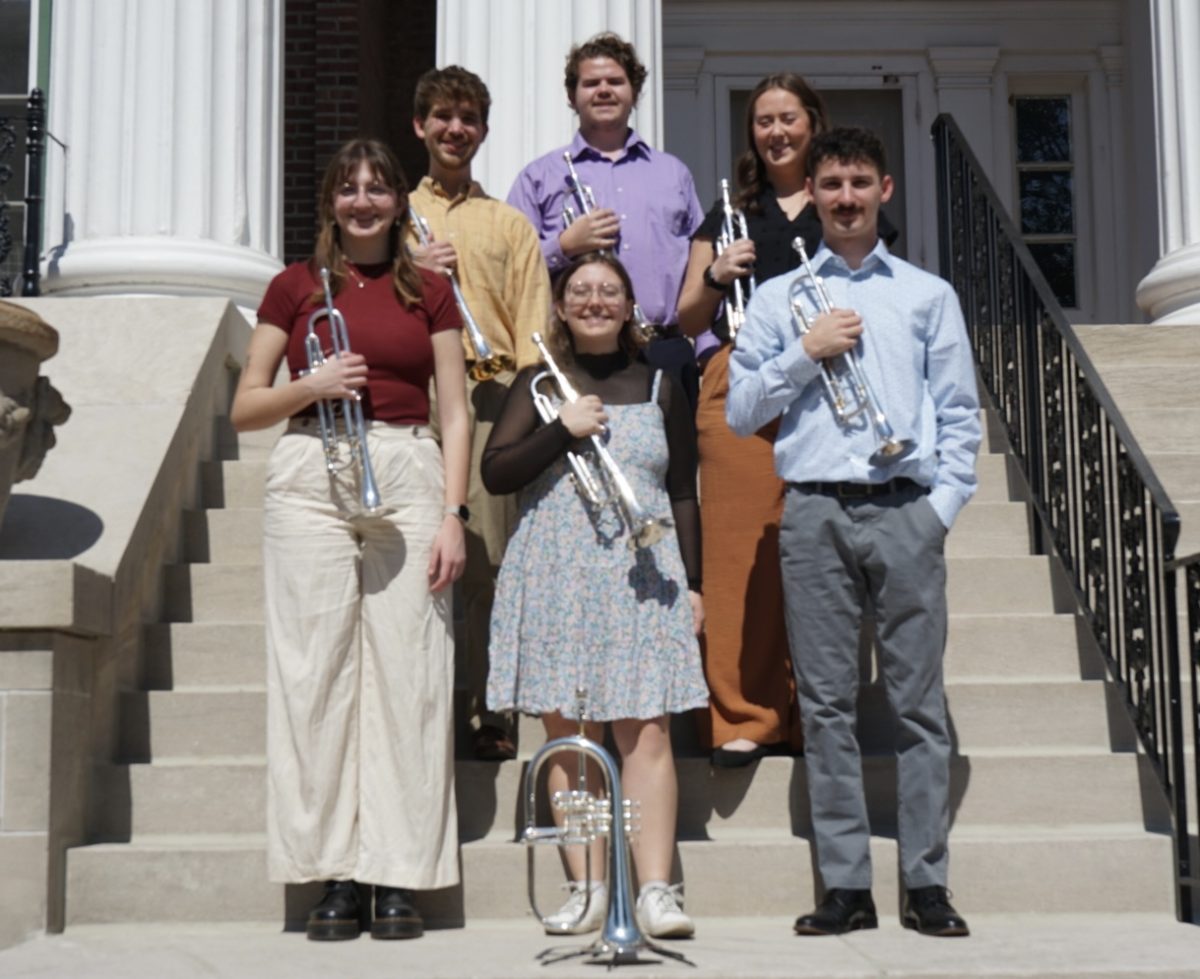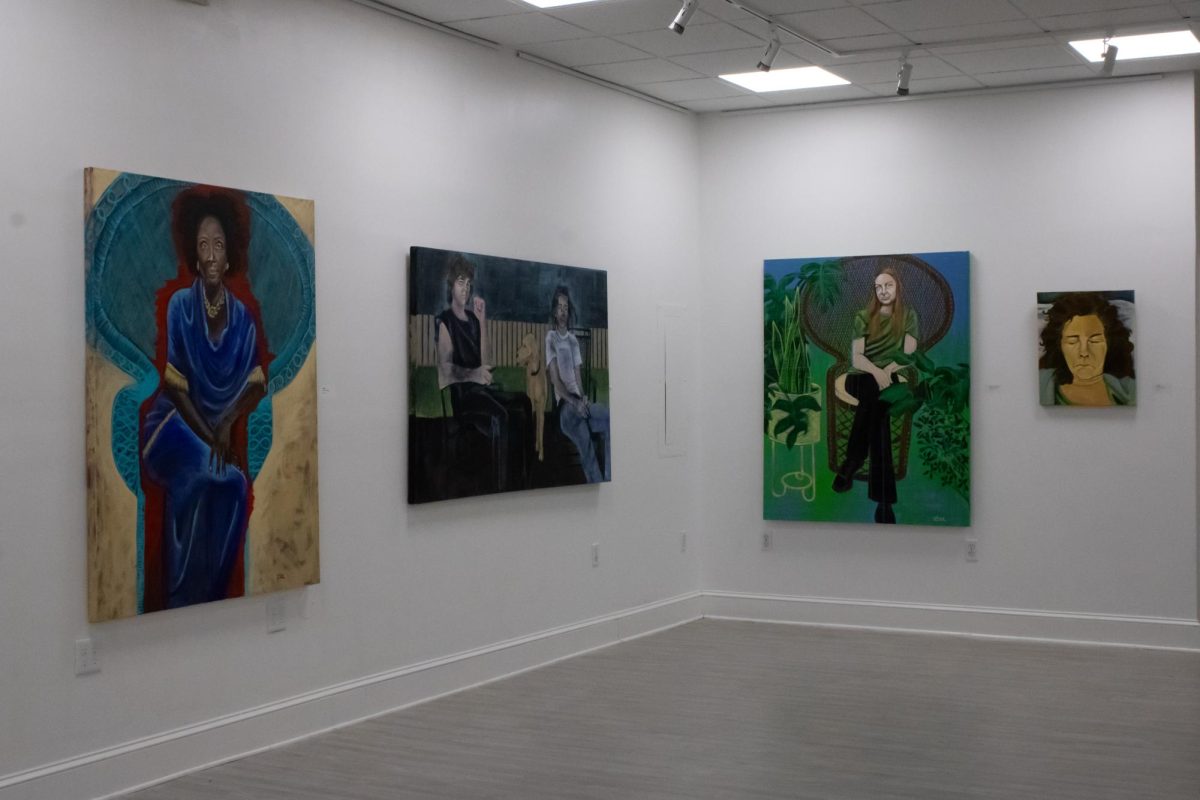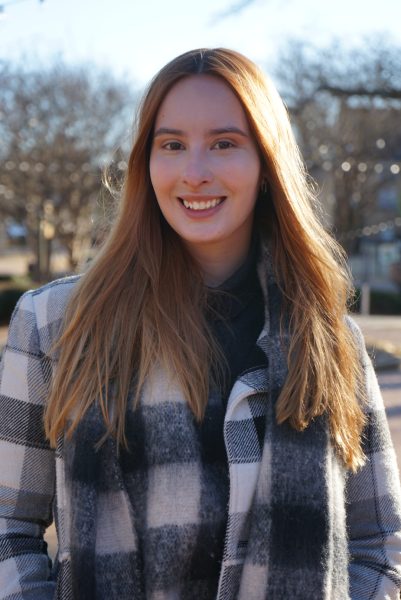The independent film community and art enthusiasts await with curiosity this year’s George Lindsey UNA Film Festival. With its intimate nature, the yearly festival promises “an eclectic mix of voices and approaches.” Screenings are happening at the University of North Alabama from Feb. 29 to Mar. 2, as explained by Michael C. Johnson, UNA associate professor and Chair of the Cinematic Arts & Theatre department, as well as the festival’s head programmer.
The main focus of the festival is to celebrate independent film in an awarded competition while allowing students to connect with filmmakers from around the world and screen as many films produced in the culturally rich Alabama as possible. For this year, out of 250 worldwide submissions, 66 are Alabama-produced films, twice the amount received in 2023.
The 20 selected finalists compete in the “Professional Narrative Feature,” “Professional Narrative Short,” “Professional Documentary,” “Student Narrative,” “Student Documentary,” “Vanguard,” “Youth Film,” “Feature Screenplay” and “Short Screenplay” categories. Showcasing the progressive identity of the festival, 57 percent of the finalist films were directed by a woman.
Johnson shares that the selection process is rigorous since there are so many submissions for few spots, and counts on the help of CAT students who watch short films and rate screenplays. As he explains, the selected ones must be “great films with good acting and compelling stories.”
Student activity helps to keep the youthful and progressive identity of the George Lindsey UNA Film Festival.
“Students put in a lot of work when it comes to putting the festival together,” said Michael Johnson. “Anyone who wants to get involved with the festival has an open invitation.”
Present in the lineup, and soon taking a plane to his home state, is Cole Johnson, from New Market, AL. He graduated from UNA in 2021 with a degree in Cinematic Arts and Theatre and is currently a graduate student at New York University Tisch School of the Arts.
“I began making films when I was ten years old,” said Cole Johnson. He and his friends would spend their weekend time producing their own creations. The happy behind-the-camera afternoons turned into a passion and soon into a degree. Johnson made his “first big move” in the Fall of 2018 when he started his freshman year at UNA.
“Professor Michael Johnson really opened my eyes to the depth and complexity you can go to craft a compelling story through the medium,” Cole Johnson said. “Aside from academics, I also made lifelong friendships and met longtime collaborators through the program. And, of course, I grew a lot as a person and as an artist.”
The university’s teachings turned the young boy into who he needed to be in order to reside in New York today. At UNA, he found his artistic voice, the one he keeps developing.
“I’ve been able to build upon the foundation that I laid at UNA and really come into my own,” he said.
Cole Johnson’s “Bless the Child” is a finalist in the “Student Narrative” category. The film presents “a young boy with ‘sensory processing sensitivity’ as he attempts to navigate the chaos of the New York City streets.”
“The genesis of the idea was my personal feelings about the overwhelming nature of the city,” Cole Johnson said.
He has been present at the festival since 2019, which he claims is an honor. Coincidentally sharing the same answer his former mentor had given regarding the identity of the event, the NYU student says that “the Shoals being the festival’s backdrop creates such a beautiful and intimate scene,” portraying how present and recognizably Southern the festival is.
From rural Alabama to cosmopolitan New York, Cole Johnson has a prosperous cinematography future. He mentions missing filming in the South, but, for now, he is committed to the creation of a feature film for his thesis, and, even sooner than that, to the plane he will take to attend the George Lindsey UNA Film Festival.
Current UNA students are also featured in the festival’s lineup and share the hope of winning the “Best UNA Film” award. A bright star in the Cinematic Arts and Theatre program is Grayson Waggoner, whose concentration is film production. Waggoner has been involved with the arts since his childhood and features in two films in the festival. “A Couple of Notes” revolves around “someone trying not to hurt their friend’s feelings as they give them notes on their horrible screenplay,” while “Poetry Night” examines the manifestation of anger in a person’s art.
Waggoner claims comedies as his favorite genre to produce and presents an ironic situation when he says that “it can be easy to forget that something is funny after spending hours writing, shooting, and editing it. (…) so it is always satisfying to hear other people laugh and react to them.”
University of Alabama student Tyler Garcia is another in-state gem George Lindsey festival features in its lineup. With a proud Latin American heritage, Garcia created the touching “Ofrenda,” which “follows a grieving young woman struggling to participate in Día de los Muertos.”
“Ofrenda explores the grief we all feel no matter who we love,” said Garcia.
The film’s creator mentions that as a UA student, he has not seen many films celebrating his own culture, which he described as an opportunity to finally showcase Latin America while also representing queer relationships.
“I place a high value on having diversity within media,” he said.
The filmmaker shares his excitement about being programmed at the festival.
“It is definitely an honor to be screened,” Garcia said. “George Lindsey is one of the most well-known and longest-running festivals within the state.”
Lorraine Sovern is a filmmaker pursuing her Master of Fine Arts degree at the University of Central Florida; she currently specializes in the experimental documentary genre with a focus on personal essay. Featured in the Student Documentary category.
Soverern’s “Forward Fast,” she said, “is an incredibly personal film. It emphasizes the conflict evolving one’s creative voice in an inherently inhospitable societal climate.”
The film examines the early stages of life to more advanced interpersonal relationships, the origin of identity and its limiting shapes.
“I explore the notion of exile and alienation,” she said. “I aim to create work that fosters a sense of connection and belonging for people who otherwise feel pushed to the outskirts.”
The independent filmmaker and actor Michael Smith, a current Chicago resident, has a five-year-long story with the festival. His first film featured in the lineup was “Rendezvous in Chicago.” In this year’s edition, Smith has two nominated films in the Professional Narrative Shorts category, “Handle with Care,” which he wrote and directed, and “Paper Planes,” based on Alyssa Thordarson’s, his co-director, original screenplay. The director describes both films as “very pure examples of what interests [him] most about cinema: creating character-driven comedies [or] dramas about the ways humans do and do not connect in the modern world.”
When head programmer Michael Johnson said the festival meant to connect the area with the global film community, there is no greater example than Smith; the last time he participated in the event, the director met the actress Elizabeth Stam, who is currently cast in his next film. “It [i]s a beautiful feeling to meet like-minded filmmakers at a festival like George Lindsey and to be reminded that I am part of a global film community,” adds Smith.
The beauty of the independent film community relies on its variety of backgrounds and freedom of expression. Adding more perspectives to the artistic scene, not only those who formally studied the art of filmmaking are featured in the festival, but a pluralism of careers, reasons, and identities.
With 20 years working at local national and cable television and over 50 short films made, Brian Schoof, from Detroit, MI, is a finalist for Professional Narrative Short. His film is entitled “It’s Murder,” “Because it’s funny, get it? ‘Oh you’re killing me!’ [It] is an interactive choose your own adventure about two characters trying to get rid of a dead body. It [i]s a comedy of errors,” he jokingly explains. Schoof is another artist who will be physically present in the festival, a term he found amusing to hear, and said, “I don’t think I’ve ever been called an artist before.”
Lily Lady, from New York City, NY, went to university to study international relations, during the COVID-19 pandemic, she “leaned” towards the arts, “mostly in the form of poetry,” she explains. The change in matter of study brought Lady to create “Sam’s World,” which is centered in the subjectivity of the life of a nonbinary sex worker. “I want this to be a film your 86 year old grandma in Indiana wants to watch and feel she can relate to,” claims the filmmaker. Lady claims she is grateful for the programmers and the festival for featuring her and is excited to meet the state of Alabama for the first time.
Michael Gabriele, from Los Angeles, CA, is a commercial director who has a deep, long-lasting passion for filmmaking. His “Room Tone” is a finalist in the Professional Narrative Shorts category. “[It] is about a disgruntled sound guy who goes through extreme lengths to achieve silence on set. It [i]s a homage to set life and takes a comedic approach to certain things that we face as filmmakers,” explains Gabriele.
This is the director’s second year at the George Lindsey UNA Festival, “I really enjoyed the film curation, the people that run the event, the students, and the experience as a whole. I’m expecting another fun and rewarding experience, the opportunity to meet an eclectic group of talented filmmakers from around the world, and to celebrate independent cinema,” he says.
The importance of film festivals goes beyond what layman might see as a fun montage of entertainment. It is a great opportunity to “foster partnerships and opportunities for filmmakers that often lead to future film productions,” as explained M. Johnson. The CAT Department Chair follows to claim that this connection is meaningful for giving an opportunity for Alabama talent to grow in the eyes of the world.
“It [i]s hard for me to talk about the impact of filmmaking without sounding grandiose or to speak about how dire things may be for filmmaking without sounding alarmist. I feel like filmmaking is at a major crossroads, especially with the emergence of AI. We have to be able to identify the worth of it and the meaning of why we, as filmmakers, do it and why it should be appreciated by audiences. I know for some people they are obvious answers, but for me, it [i]s way more complicated. If anything, the festival is an opportunity to ask a lot of questions about the current state of film as an art form and expose our community to filmmaking you might not be able to see at the local AMC. We can see how the Shoals have affected the global music scene. That’s possible with film production. The talent is here. I see it in my students every day,” claims Jhonson.
Undoubtedly, the way Johnson feels about the film industry is how many other artists do about their own. Independent artists – writers, filmmakers, musicians, visual artists, and more – tend to deeply feel the chains of mass media, popular culture, and the emerging risks of artificial intelligence restricting or minimizing their creations. At UNA, the thriving and supportive artistic community exists through the hard, passionate work of the artists who lecture and run the place. The festival is a great example of its success in generating brilliant minds and democratizing art.
“The George Lindsey UNA Film Festival helps amplify the voices of their talent,” Johnson said. “If you just attend the film festival, you’re doing a lot to actively keep the medium alive.”


